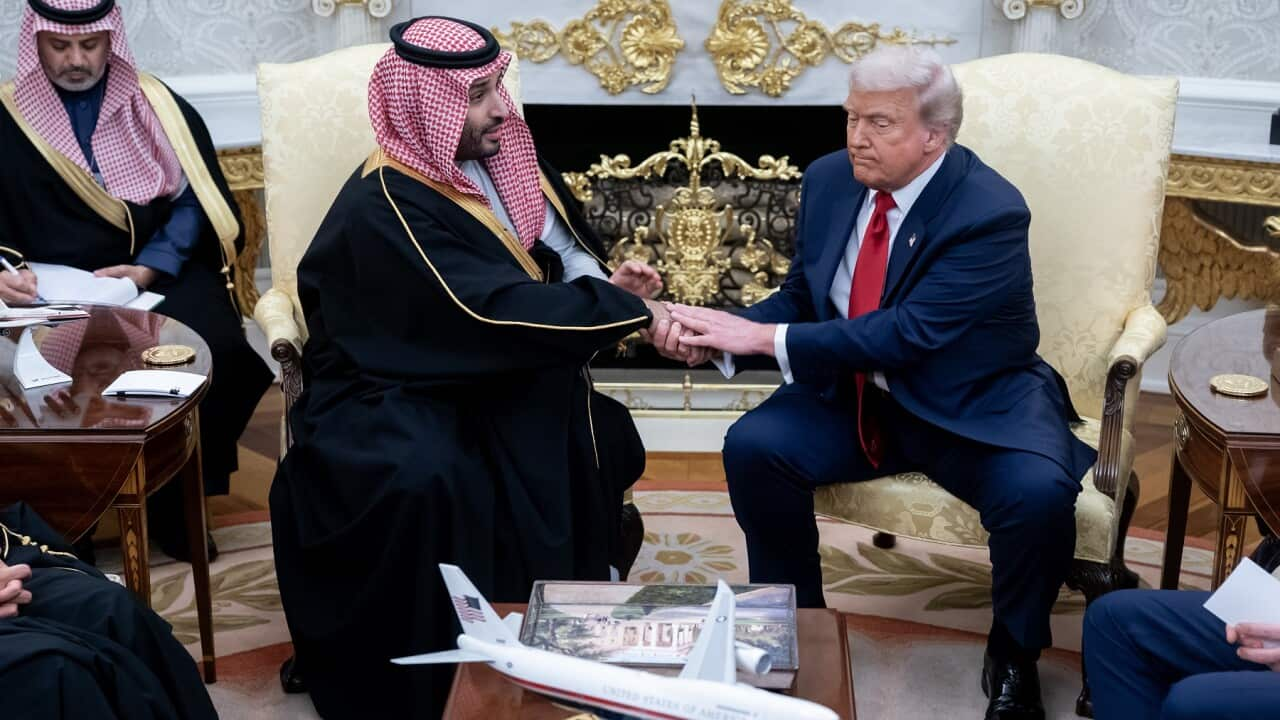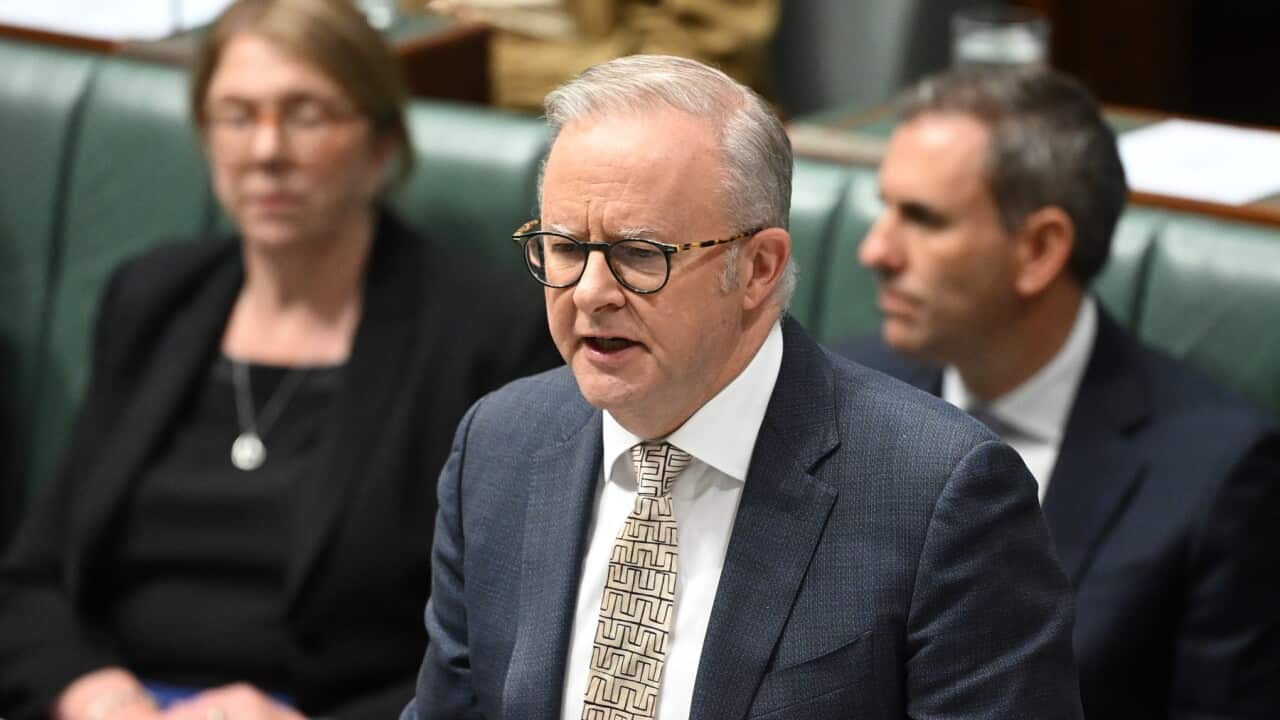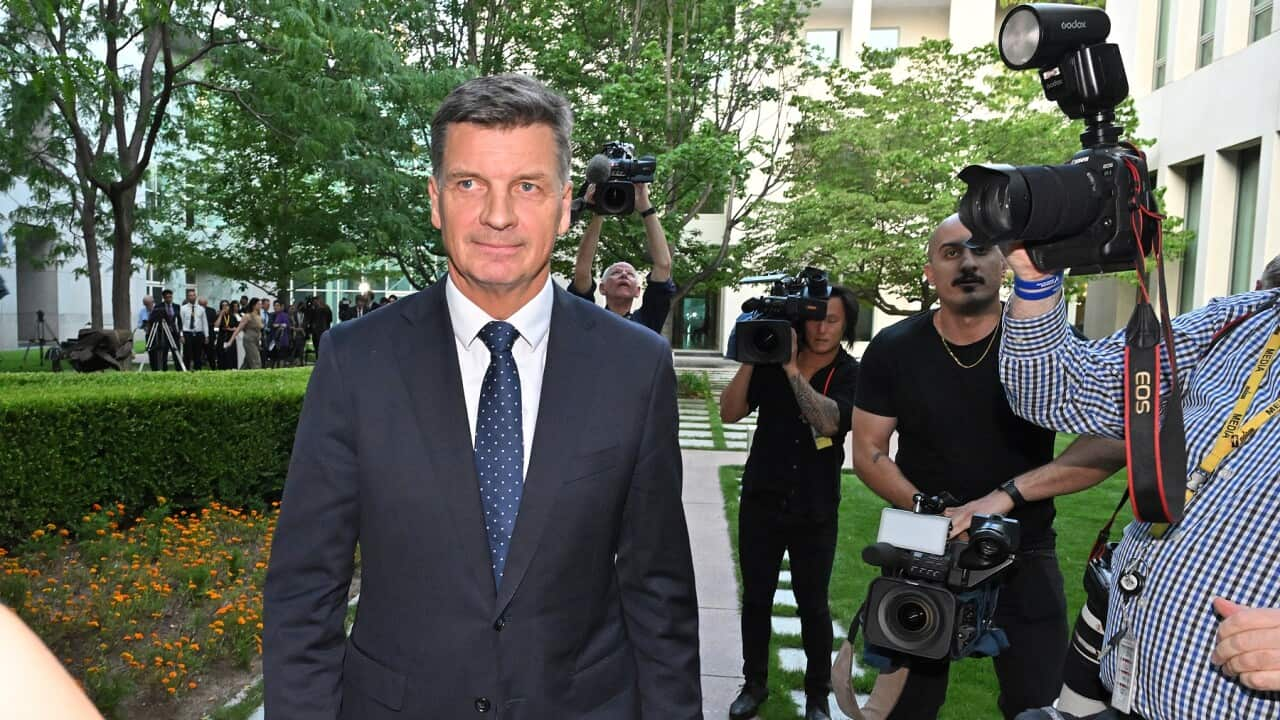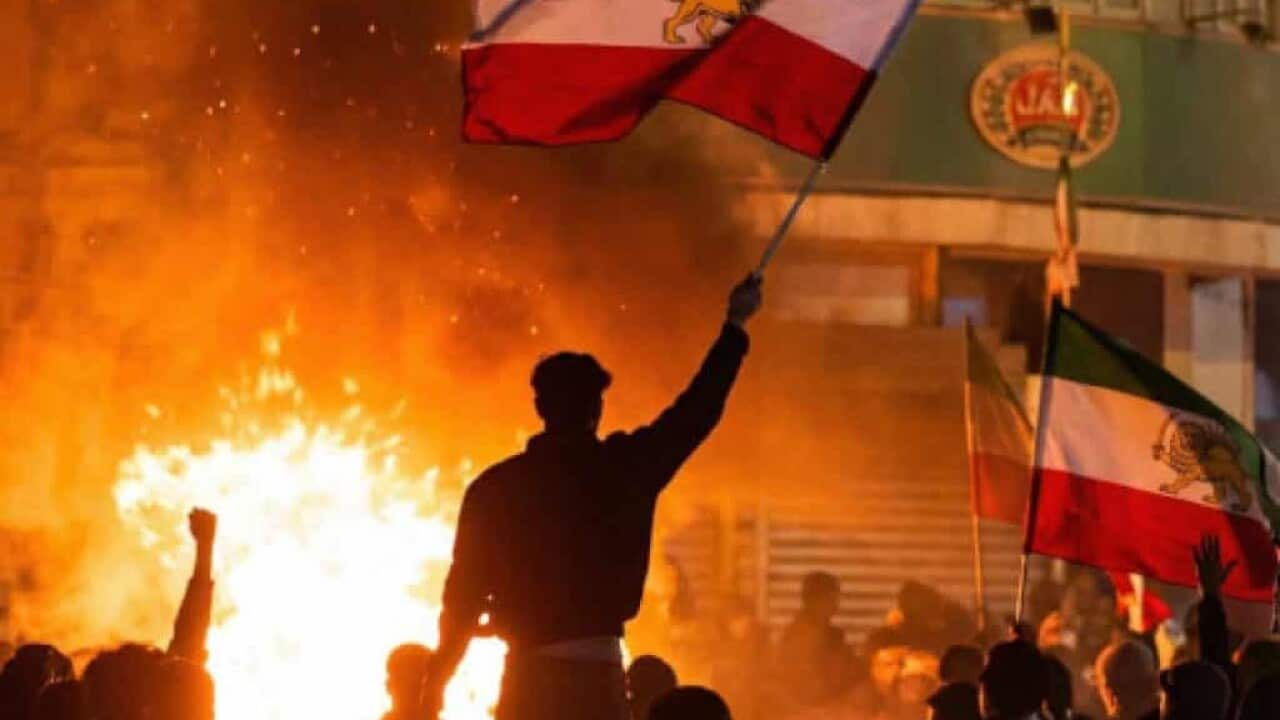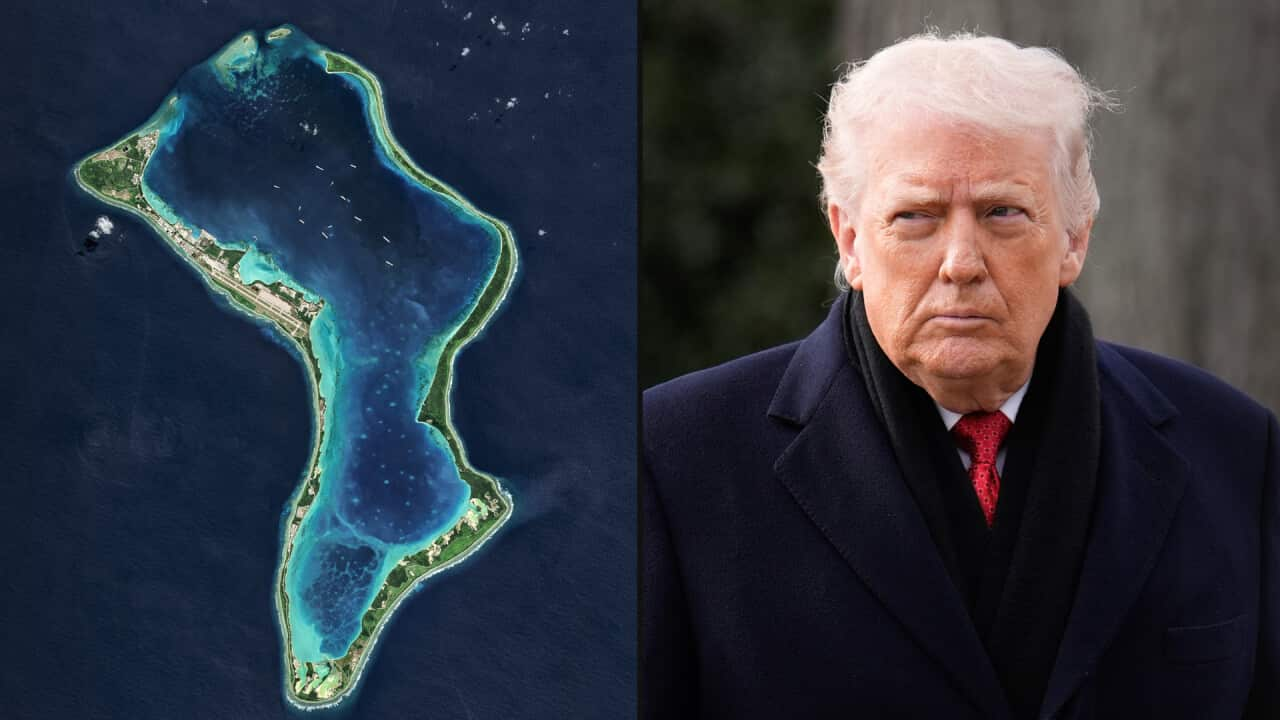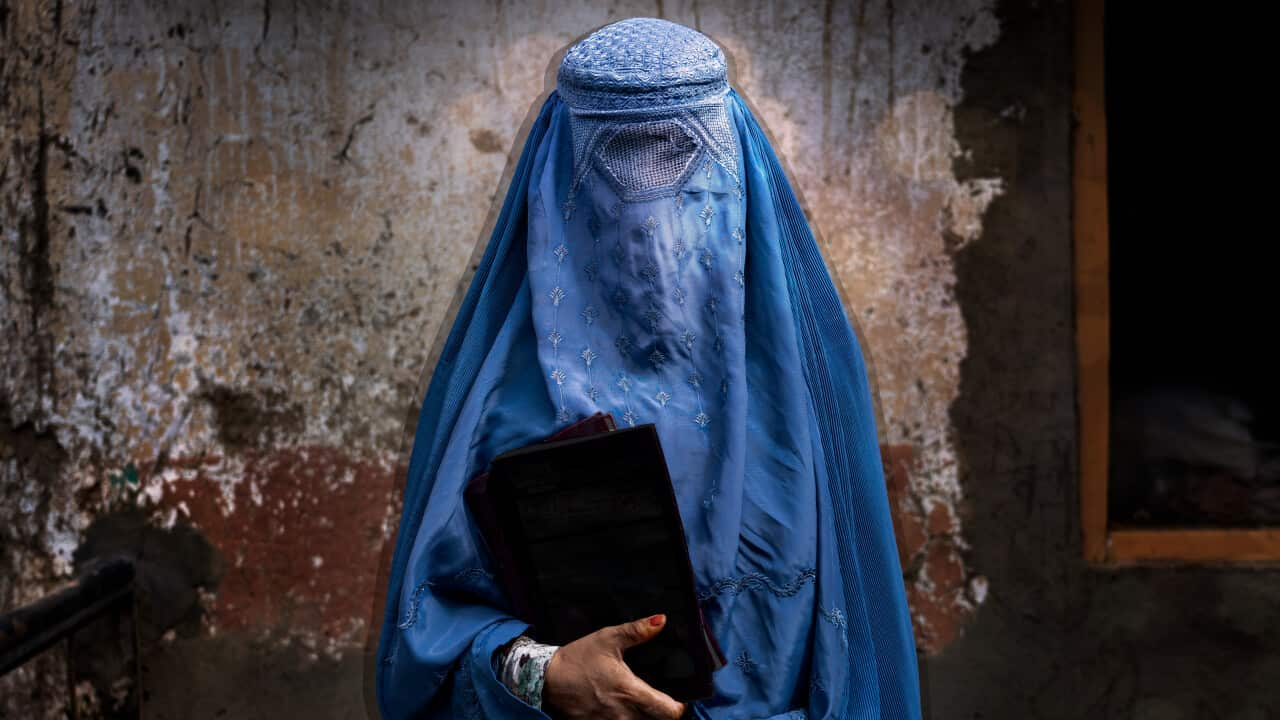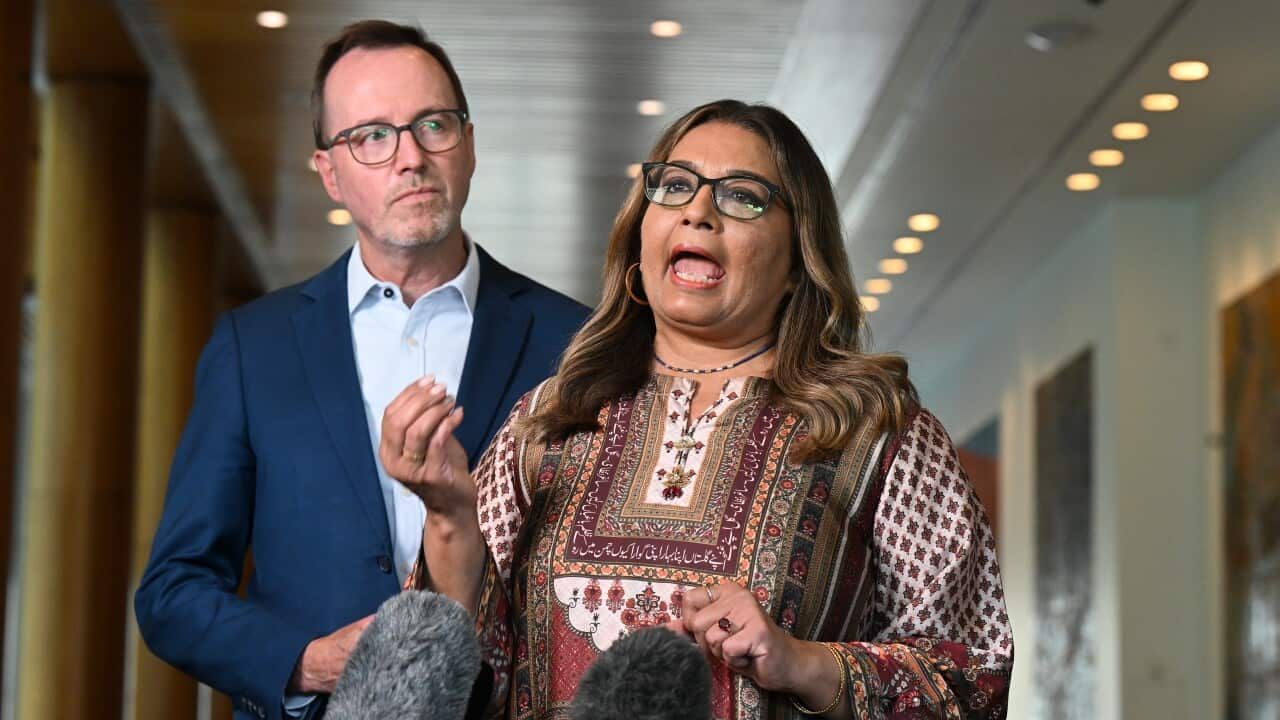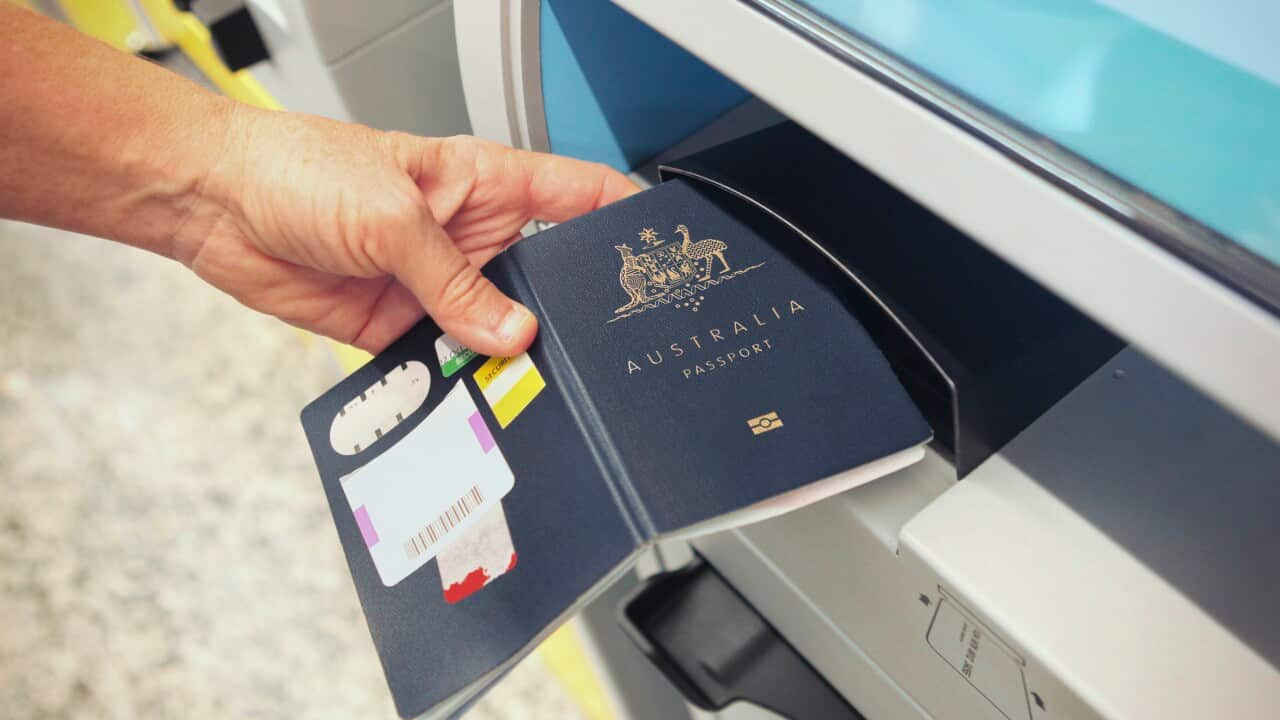Listen to Australian and world news, and follow trending topics with SBS News Podcasts.
TRANSCRIPT
In Washington DC, the red carpets, gold frames, and political theatre were impossible to ignore.
Saudi Arabia’s Crown Prince Mohammed bin Salman, also known as MBS, arrived at the White House for his first visit since the murder of journalist Jamal Khashoggi to meet with US President Donald Trump.
What followed was a day of flattery, record-breaking financial promises, and sharp geopolitical messaging.
The US President first led the Crown Prince along his newly curated Presidential Walk of Fame, showcasing portraits of every US president except Joe Biden.
Inside the Oval Office, he was all praise for the Saudi leader.
"We have an extremely respected man in the Oval Office today, and a friend of mine for a long time. A very good friend of mine. And I'm very proud of the job he's done. What he's does is incredible in terms of human rights and everything else. And he's the Crown Prince, the future king."
The Saudi Crown Prince did not come to the White House empty-handed; he came with the promise to invest a trillion US dollars in America.
“I believe, Mr. President, today and tomorrow we're going to announce that we are going to increase that $600 billion to almost $1 trillion for investment, real investment and real opportunity by details in many areas. And the agreement that we're signing today in many areas, in technology, in AI, in [unclear], in magnet, etcetera. That will create a lot of investment opportunity…”
TRUMP: “So you are doing that now. You're saying to me now that the six hundred billion will be one trillion.”
BIN SALMAN: “Definitely. Because what we are signing, it will facilitate that…”
TRUMP: “Good. I like that very much."
Ahead of the Crown Prince’s arrival, Mr Trump had announced he had agreed to sell Saudi Arabia F-35 fighter jets, despite internal concerns that the deal could expose sensitive US technology to China.
Mr Trump welcomed the Crown Prince's pledge, repeating his claim that his policies will attract massive foreign investment.
“And I want to thank you because you’ve agreed to invest $600 billion into the United States, and because he’s my friend, he might make it a trillion, but I’m going to have to work on him, but it’s 600, we can count on 600 billion, but that number could go up a little bit higher. Yes, sir, I don’t know. We’ll see.”
Economists say the US President's target of approximately US$21.2 trillion in investment commitments by year’s end appears unrealistic and remains unexplained by the White House.
Asked if Saudi Arabia could sustain such spending amid low oil prices, Prince Mohammed suggested the strategy aligns with technology development, especially computer-chip production.
"We are not creating fake opportunities to you know, please America, please President Trump. It's real opportunities. For example, when you ask about the AI and the chips, Saudi Arabia have a huge demand of– a huge need of computing power and we're gonna spend in the short term around $50 billion by consuming those semiconductors for our needs in Saudi, = Saudi Arabia and with the agreement that we're gonna have with United States of America that will allow us to focus that consuming power in short term by $50 billion."
Mr Trump and Secretary of State Marco Rubio both say they are working on getting the proper licenses to export the chips.
TRUMP: “We are working on that. We're negotiating that right now. Marco do you want to talk about that, or Scott?”
RUBIO: “Well, I mean, that's part of what, we may have announcements on that later today. But that's what we've been working on, is the mechanics by which something like that can be achieved. And it's part the broader process, part of this broader engagement and cooperation between our two countries.”
TRUMP: “Certain levels of chips.”
The mood shifted sharply however, when a reporter asked about Saudi journalist and dissident Jamal Khashoggi, who was murdered at the hands of Saudi agents at the Saudi Consulate in Istanbul, Turkiye in October of 2018.
A US intelligence assessment concluded that the Saudi Crown Prince orchestrated the brutal murder.
This is the question posed by a US ABC journalist at the Oval Office.
"Mr President, Mr President, is it appropriate, Mr. President, for your family to be doing business in Saudi Arabia while you're president? Is that a conflict of interest? And your Royal Highness, the US intelligence concluded that you orchestrated the brutal murder of a journalist. 9/11 families are furious that you are here in the Oval Office. Why should Americans trust you? And the same to you, Mr President.
Trump: Who are you with?"
The question irritated the US President who replied with:
“Who are you with? (I'm with ABC News, sir.) You're with who? (ABC News, sir.) Fake news, ABC fake news, one of the worst, one of the worst in the business. But I'll answer your question. I have nothing to do with the family business. I have left and when I I've devoted a hundred percent of my energy. What my family does is fine. They do business all over. They've done very little with Saudi Arabia, actually. They could I'm sure they could do a lot. And anything they've done has been very good. That's what we've done. We've built a tremendous business for a long time. I've been very successful.
The Crown Prince then delivered his own response, calling the killing of Mr Kashoggi painful and a huge mistake.
"About the (Washington Post) journalist, it's really painful to hear you know anyone that has been losing his life for you know no real purpose or no nothing in a legal way. And it's been painful for us in Saudi Arabia. We've did all the right steps of investigation etcetera in Saudi Arabia and we've improved our system to be sure that nothing happened like that and it's painful and it's a huge mistake and we, we are doing our best that this doesn't happen again.”
Both the US President and the Crown Prince were then asked about the reconstruction of Gaza.
Prince Mohammed says no amount has been agreed upon yet, but that Saudi Arabia will help.
A civil nuclear deal - long debated - was also raised, with the US President saying it is possible, but not urgent.
All in all, it was a day of gold-framed optics, trillion-dollar promises, fierce questioning and strategic ambition.
Whether the nuclear talks, F-35 sales or investment totals materialise remains to be seen, but the voices from inside the Oval Office have set out a clear direction for the US–Saudi relationship.
